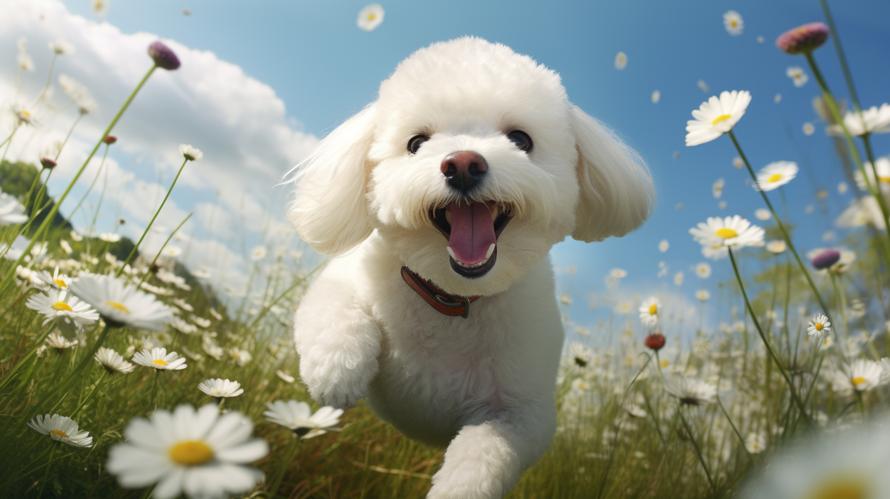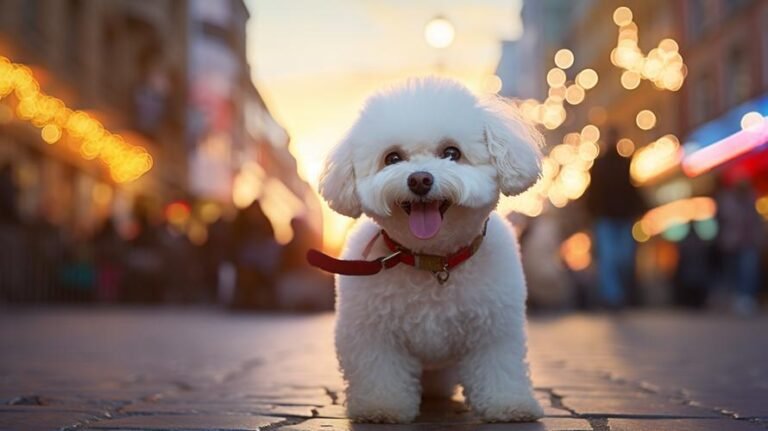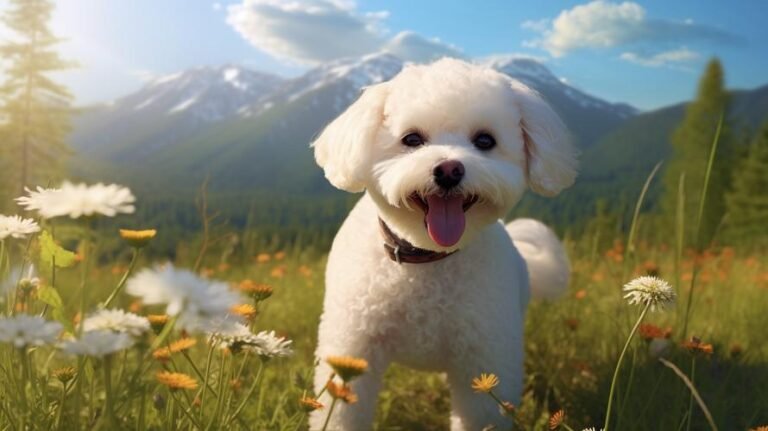Did you know Bichon Frise, the fluffy little fur balls, a.k.a. French lap dogs, have their notable footprint in many historical events? You might be pleasantly surprised to know that Bichon Frise participated in barter trades during the 13th century, glammed up the royal courts of Spain, France, and England in the 16th century, and even contributed their part in the French Revolution. While their historical journey is fascinating, many people today know and love Bichon Frise for their cheerful disposition, charming personalities and stunning, hypoallergenic, white coats.
But the all-important question is: How easy is it to train a Bichon Frise?
In the world of pet training, the Bichon Frise is often hailed as a superstar. They are renowned for their intelligence, agility, and enthusiasm for learning new things, making them an ideal choice for pet owners, both first-timers and experienced ones. However, training any breed of dog requires patience, consistency, and understanding, and the Bichon Frise is no exception.
One big plus is Bichons are extremely eager to please. These cute fur pals will do anything to bring happiness to their owners, from performing goofy tricks to offering unwavering companionship, making them more receptive to training. Remember, a Bichon will not understand if your training methods are harsh or inconsistent, and these methods often prove to be ineffective. Rather, you need to approach them with love, patience, and a well-thought-out plan.
When you start training your Bichon, make sure to break down each command into small, manageable parts. Bichons grasp new commands when they are simple and easy to follow. Make your training fun and engaging, like playtimes. When your Bichon successfully performs a task, shower them with praises and treats. This will encourage them to continue learning and obeying commands.
Let’s dive into specific areas where Bichon Frise shines in training:
HOUSE TRAINING:
House training, for the uninitiated, involves teaching your furry pal where and when to do their business. While Bichons generally get a gold star in trainability, house training can be a tricky area where they might need extra attention. Smaller breeds like Bichons have smaller bladders. That means they’ll need more frequent bathroom trips than larger dogs. A regular outdoor schedule, coupled with praises for successful outdoor ventures, can be very effective.
LEASH TRAINING:
Bichons pick up leash-training quite effectively. Start by introducing your Bichon puppy to a lightweight leash. Encourage and praise them when they walk in sync with you without pulling the leash. Avoid pulling the leash or dragging them along, as this may build resistance or fear. Patience and consistency are essential, especially if your little one takes time to get used to their new “walking companion.”
SOCIALIZATION:
Bichons are sociable by nature. They love interacting with people and other pets. However, they can be shy or aggressive with strangers or new environments. So, it’s crucial to start socializing your Bichon puppy from a young age. Expose them to different environments and experiences, new pets, and different people. This will ensure they grow up to be confident and friendly adults.
TRICK TRAINING:
This can be immense fun for both you and your Bichon. Bichons excel in agility and obedience trials, thanks to their playful nature and desire to please their owners. Some common tricks that Bichons learn quickly are ‘sit’, ‘stay’, ‘fetch’, ‘roll-over’ and ‘shake hands’.
When it comes to training Bichon Frise, the method is just as important as consistency. Positive reinforcement, like praise, treats, and cuddles, proves to be highly successful. Remember, Bichons are sensitive creatures that thrive on affection. Don’t hesitate to shower them with love and positivity.
In conclusion, while pet training has its challenges, with the right approach, patience, and consistency, your Bichon Frise can prove to be a quick learner. So, if you’re planning on introducing a Bichon Frise into your family, rest assured that while training might require some effort, it will be an enjoyable and rewarding journey. Not only will your Bichon learn new tricks, but you will form a deep bond with your furry friend, making life more joyful. And isn’t that what pet ownership is all about?



